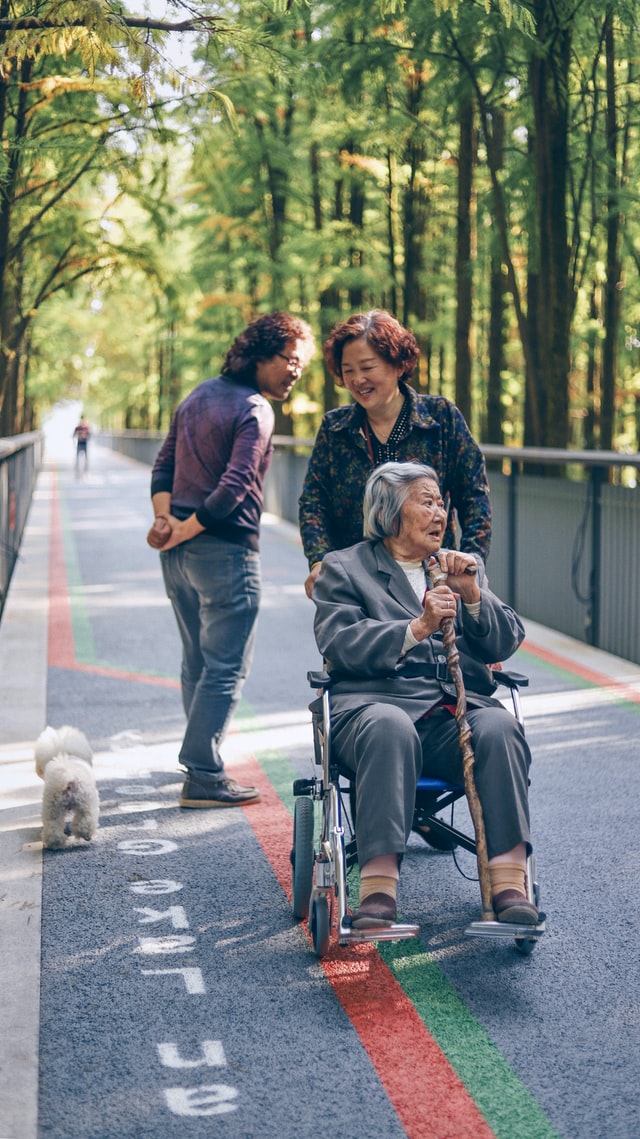Page Contents
At some points of time, you may become a caregiver looking after and supporting someone in need. The person could be anyone from parent, child, sibling, relative, friend, to neighbour. For whatever reasons you are doing this, you are definitely a kind soul with big heart, and willing to sacrifice your other life commitments to care for that particular person.
In this article, we will discuss what is a caregiver, caregiver’s roles and responsibilities, as well as challenges of being a caregiver.
Who are you caring for?
We often hear about the terms social worker, befriender, and caregiver. These 3 roles can support the same care recipient in different aspects.
Social worker plays an important role in sourcing for social and financial supports for an individual or family who meets certain criteria. This profession is run by an organisation, becoming a social worker requires proper licensing and certifications.
While a befriender mainly care for elderly people who is experiencing social isolation and loneliness. Their role is to mentally support a care recipient through companionship.
A caregiver is a person looking after someone who is unable to care for himself or herself independently because of illness, frailty, physical disability or mental incapacity. The purpose of caregiving is to assist them overcoming hurdles and improve their quality of life.
- Frail. Weak elderly person, e.g. elderly with hip fracture.
- Disabled. Stroke patient, burn victim, amputee, vegetative patient, mentally handicapped, etc.
- Chronic conditions. Patient with cancer, dementia, severe diabetes, heart and kidney failure. etc.
- Mentally unstable. Mentally and emotionally distressed person.
- Terminal illness. Person with incurable illnesses which may lead to death.

Domestic helpers are commonly hired to perform household chores. In some families, they are also tasked to look after elderly people in the family. For them to carry out the role safely and provide the best care possible, they should go through a proper caregiver training conducted by licensed training providers.
Scope of caregiving
Caregiving is a responsibility that encompasses a wide range or care and assistance.
- Physical needs
Assisting care recipient in performing Activities of Daily Living (ADLs) for example dressing, washing, feeding, mobility, transferring, toileting and carrying out household tasks such as buying groceries and chores. - Health and medical needs
Providing assistance in simple rehabilitative exercises, nutrition and medication management, medical concierge, making medical appointments, etc. - Psycho-social and emotional needs
Providing companionship, care and mental support to care recipient. The setting can be in the form of individual, community support group, or work hand-in-hand with befriender. - Spiritual needs
Encouraging your care recipient to continue his or her routine practice of religious beliefs. - Financial and legal needs
Assisting care recipient in the management of daily expenses, insurance, assets, and financial planning. Early engagement in Advance Care Plan (ACP) and Lasting Power of Attorney (LPA) is also helpful should the care recipient loses his or her mental capacity down the road.

Looking after your own needs as caregiver
Being a caregiver is not just caring for other people, you must also learn to care for yourself. Taking up a caregiving task, you may need to manage your time, social life, leisure activities, etc. Learning how to juggle between all these and find the balance require a lot of patience.
Also, be aware that you are likely to look after a person whom may be emotional distress. Many of them are not able to handle and express their emotions well. Sometimes, conflicts and anger between both parties are inevitable.
Apart from managing emotion, you may experience your own stress and feeling burnout. It is important to reach out for caregiver support groups or explore respite care if needed. Remember, you cannot provide proper care if your own health is compromised or your life is in a mess.
Conclusion
Caregiving is a long-term commitment that requires compassion and patience. A dedicated caregiver really means a lot to the care recipient.
In our future articles, we will touch on a series of care that are essential to the elderly and those in need. Stay tune!
